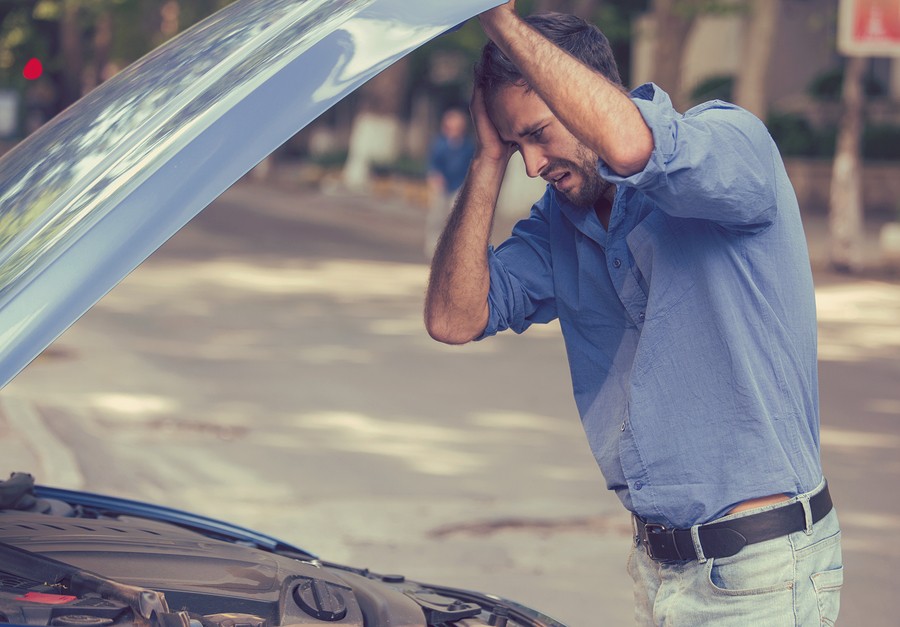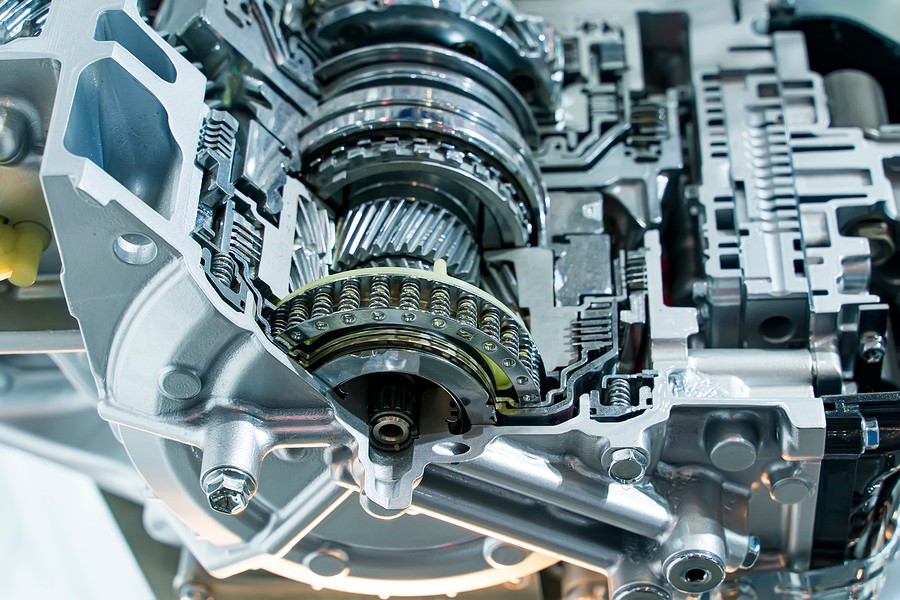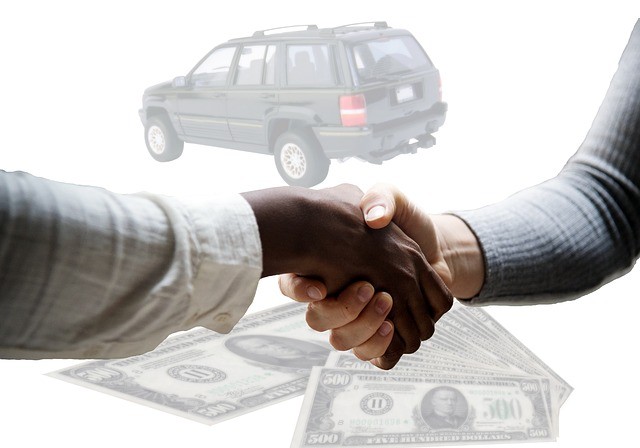What started as a seemingly ordinary day quickly takes a turn for the worse. While cutting through traffic on your way to work. Your engine stops cranking, and your power steering suddenly goes out. Something’s wrong, the wheel is stiff – better pull over. Then, as you attempt to stop, you notice the brakes don’t feel right, they’re hard to press and less responsive. What happened? Well, it sounds like you might have a stalled engine, meaning it stopped turning. If you’re like most people in this situation, you’re likely asking yourself: “why did my car engine stall?”
Stalling problems trace back to three primary causes: a lack of fuel, not receiving enough air, or insufficient power. Common reasons include an empty gas tank, a faulty fuel pump, a bad ignition coil, fouled spark plugs, water in the fuel, or a failing sensor.
An engine stall is never fun. Not only does it leave you without a reliable way to get around, but it can also pose a safety risk. For this reason, we’ll first discuss the proper steps to take to keep yourself safe if your car stalls while driving down the road. Then, we’ll examine the common reasons that lead to a stalled-out car, as well as the costs associated with one.
Safety First – What to do if Your Car Stalls on The Road
What should you do if your engine stalls while you are driving? The first thing is to let those around you know there’s an issue – by turning on your hazard lights. Then, when it’s safe to do so. Make your way to the right-hand shoulder and get as far over as possible.
It’s important to note that remaining inside a stalled car is the safest place. Meaning you should never exit the vehicle unless you’re 100% sure it’s clear. If you do, you might also consider laying a few road flairs to increase visibility. You can also raise the hood, which is a universal sign that there’s an issue. Just be sure it doesn’t reduce your own ability to see clearly.
Be sure to leave your car in neutral with the parking brake off. Why? Because if there is a collision, it lessens the impact force. Even if your car stalls while driving but starts back up, you might want to think twice before doing so. If it’s due to one of the common issues, like a failed fuel pump, it’s likely to keep stalling. Not only does this put you back in danger, but next time you might not have a safe place to pull over.
Next, you’ll want to get help. Whether this means calling a friend with a vehicle capable of towing, a towing company, or roadside assistance. Most insurance providers cover the first tow. So, if your car or truck stalls while driving, the first one might be included. If you don’t have cell coverage, you might have to wait for someone passing by to offer help. In this case, stay put with your seat-belt and hazard lights on.
Now that you have an idea of what to do when your car stalls, and how to stay safe. Let’s look at what typically causes a car to stall in the first place.
Why Did My Car Engine Stall?

As mentioned earlier, three primary causes lead to a car stalling. The first is a lack of fuel. The second, not enough air. And the third is an insufficient amount of power. Let’s look at each of these to make sure you have a better understanding of why cars stall.
- Lack of Fuel
Why does a lack of fuel lead to a vehicle stalling? Obviously, your engine needs fuel to run. But there’s more than just forgetting to fill the tank to worry about. The first thing that can lead to engine stalls is a clogged fuel filter. Your fuel filter rests in the fuel line. It works by screening out harmful particles like dirt, dust, debris, and rust before they can damage your injectors.
How long do fuel filters last? About 2-years. Thankfully, you can have a mechanic perform a fuel pressure test to determine if you need a new one.
Accidents happen, and if by some chance you fill the tank with the wrong type of fuel, it will stall the car. What do we mean by the wrong kind of fuel? It’s simple, if you own a diesel engine and put gasoline in it (and vice versa), you’ll have stalling problems. Thankfully, you can resolve this by emptying the tank with a siphon pump.
- Not Enough Air
Your engine needs air to breathe, just like you do. Not having enough air will lead to a stalling vehicle. It has to be clean air, though, which is where your air filter comes in. The air filter removes contaminants like dirt, pollen, dust, leaves, and any other debris before they harm the engine. After a while, your air filter will become clogged, which means not enough air will be able to pass through.
Thankfully, they last a long time, about 3-years. You don’t have to wait until your car keeps stalling out. Other symptoms show up first. Some of these including reduced fuel economy, misfiring, odd engine sounds, a check engine light, or if it appears dirty.
- Insufficient Power
If your car stalled out while driving, it might be due to an insufficient amount of power. Your engine needs electricity to run. Thankfully, this is where the ignition system comes in. Once you put the key in and turn it. The battery sends a low amount of electricity to the spark plugs. Which ignites the air/fuel mixture in the combustion chambers, causing a controlled explosion that moves the pistons. Once these are in motion, the alternator kicks in to keep things going.
Without a sufficient amount of power, your car can’t power the vital components that keep it running. One of these is the fuel pump, which is in charge of delivering fuel from the tank to the engine. As we mentioned earlier, a lack of fuel will stall a car, causing the engine to die while idling or driving. Thankfully, fuel pumps last a long time, as much as 200,000 miles. Though, once you’ve passed the 100,000-mile mark, the chances of it failing increase.
Are you still wondering why cars stall? If you’ve read through this section, you should have a much better idea. But, to make sure, let’s look at a few other reasons that can lead to your car dying.
Why Does My Car Stall When I Turn?
Tracking down engine issues is rarely as easy as we might like. However, no matter how odd the cause of stalling cars, there’s always a reason. Take turning the wheel, for instance. Most might not think this could lead to a car stall, but it can. Why? It’s most likely a faulty MAP Sensor, which is in charge of monitoring the amount of air flowing to the engine.
When you turn the wheel sharply to one direction or the other. It causes more strain on the power steering system. To account for this, the MAP Sensor sends a signal saying to adjust the ignition timing and air/fuel mixtures ratio. If any of the parts needed to make this happen aren’t working correctly (sensors, fuel pump, fuel filter, air filter), it can lead to car stalls.
While this isn’t always the reason behind a car stalling out, it should give you a solid idea of how complex they are. Even the smallest of things can throw off the system, and its response might be to shut down entirely.
Let’s now review what can lead to a car stalling at idle.
What Causes an Engine to Stall at Idle?
The reasons an engine stops at idle is similar to what causes a car to stall while driving. The primary culprits stem from the same sources you might remember, a lack of air, not enough fuel, or a low amount of power. For a car to sustain while idling, everything has to be working flawlessly. If even a single sensor is off by a little bit, it can cause a chain reaction that will lead to car or truck stalls while idling.
One common culprit includes a leak in a vacuum line, which are rubber or hard plastic hoses that carry air from your intake manifold to your engine. Another cause could be an issue with one of the parts of your induction system (like the IAC valve). Which is in charge of metering and directing the correct amount of air to the engine.
Other causes include:
- Water in your fuel tank
- Crankshaft or Camshaft position sensor
- Faulty ignition coil
- Wiring problem
- Fouled spark plug
Regardless of the exact reason, if your car cuts off when stopped, you’re lucky you weren’t driving. Let’s look at one more cause of a stalling engine.
What Causes a Car to Stall Out? – It Might Be Your Transmission

- Automatics
Automatic transmissions are complex components. One of the parts that ensure they operate correctly is a torque converter. Which manages the transmission fluid and ensures the engine stays running. If there’s an issue with your torque converter, there’s a good chance the car stalls while idling. There are several reasons it might give out, some of which include dirty transmission fluid or overheating.
- Manuals
If you own a car with a manual transmission, there’s a good chance you already know about stalling the engine. If your car is stalling, you’ve likely let the clutch out too quickly. The reason is due to the RPMs dropping too low, which causes the engine to shut down. If there’s no engine light but the car stalls, it’s probably because of this. Doing so time and again will cause your clutch to wear out quicker. The same goes for riding the clutch, meaning you didn’t engage it fully. Over time you’ll end up burning it and will have to get it replaced.
Regardless of which type you have, stalling the car is never a good thing. Speaking of that, let’s look at how costly it is if your engine keeps stalling.
What Does it Mean When a Car Stalls? – A Hefty Shop
Stalled cars are costly to repair, there’s no other way to say it. On a low end, expect at least a $200 shop bill, and that’s likely if it’s just due to a bad battery. The high end? Try $2,500, sorry to break it to you. However, there’s no way to be 100% sure until you get it diagnosed. Sadly, tracking down the exact issue can be troublesome, meaning a second or third time back in the shop.
The best way to defend against high repair costs is to get your car looked at as early as possible. Even if your car or truck keeps stalling, but starts back up, you should avoid driving it. The last thing you want is to end up causing a severe issue, like a cracked engine block.
If your stalled and you’d preferably be done with it, you might consider getting rid of it. But who wants to go through the hassle of selling a vehicle that keeps stalling at idle? Thankfully, we’ve got an easy solution for you.
What is Stalling a Car? – It’s a Good Time to Sell it to CashCarsbuyers

Here’s where we come in – CashCarsBuyers. While a car stalling out when stopped might sound like a bad thing to you. To us, it doesn’t matter. We buy all types of cars, trucks, and SUVs, no matter their condition. Does your car die when idling? Not a problem, we want it. Does your car sputter and stall? Totally fine with us, we’re ready to make an offer.
Head to our site today for a quick 1-minute quote. If you like our offer, we’ll show up in less than 24-hours and haul it away for free (so long as everything matches your description). Why wait? Start the estimate process right away or call us directly at (844)-663-7286).




